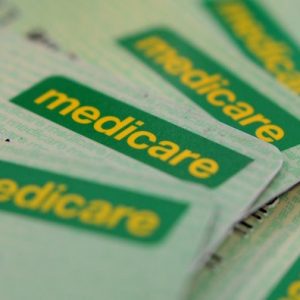
Medicare is the name of the publically funded universal health care system within Australia which provides free or subsidised treatment by medical professionals. Australian citizens and most permanent residents are eligible for Medicare which provides access to medical services, reduced cost prescriptions and free care as a public patient in a public hospital.
Medicare reimburses 100% of the Medicare Benefits Schedule (MBS) fee for a GP consultation and 85% for a specialist consultation. The MBS lists the services and unique item numbers for which a Medicare benefit is payable.
Some GPs and specialists bill Medicare directly so the patient doesn’t have to pay anything, this is known as “bulk billing”. Health professionals must have a Medicare provider number in order to claim Medicare benefits.
In other instances the patient has to pay the fee and then claim the rebate back from Medicare. Many practices offer electronic claiming so that the Medicare benefit can be obtained at the same time as payment. Doctors may choose to charge higher than the MBS fee, in which case patients have to pay the difference, commonly referred to as the “gap” or “gap payment”.
With regards to pharmaceuticals, Medicare subsidises the cost of medicines under the Pharmaceutical Benefits Scheme for approved prescription medicines purchased at a pharmacy. All Australian residents who hold a current Medicare card are eligible for the Scheme. Pharmaceutical benefits can only be prescribed by doctors, dentists, optometrists, midwives and nurse practitioners.
It is important to note that Medicare does not cover private patient hospital costs, medical and / or hospital costs incurred overseas, services which are not deemed clinically necessary such as cosmetic surgery, or ambulance services.
Eligible persons may opt to rely on Medicare only or also take out private health insurance to assist with medical expenses. Private health insurance does not cover medical services which are covered by Medicare such as GP visits, specialist consultations, diagnostic imaging and tests. Around 55% of Australians have some form of private health insurance.
To reduce the pressure on Medicare, Australians earning over a specific annual income are levied with a Medicare surcharge if they do not have an appropriate level of private health insurance which includes hospital cover. This is in addition to the Medicare Levy of 2% of their taxable income which most Australian taxpayers pay unless their income is below a certain threshold.
Medicare policy is developed by the Department of Health and administered by the Department of Human Services. The MBS is the responsibility of the Department of Health and Ageing. More information about what Medicare is and how it works can be obtained from these various Australian Government departments.
